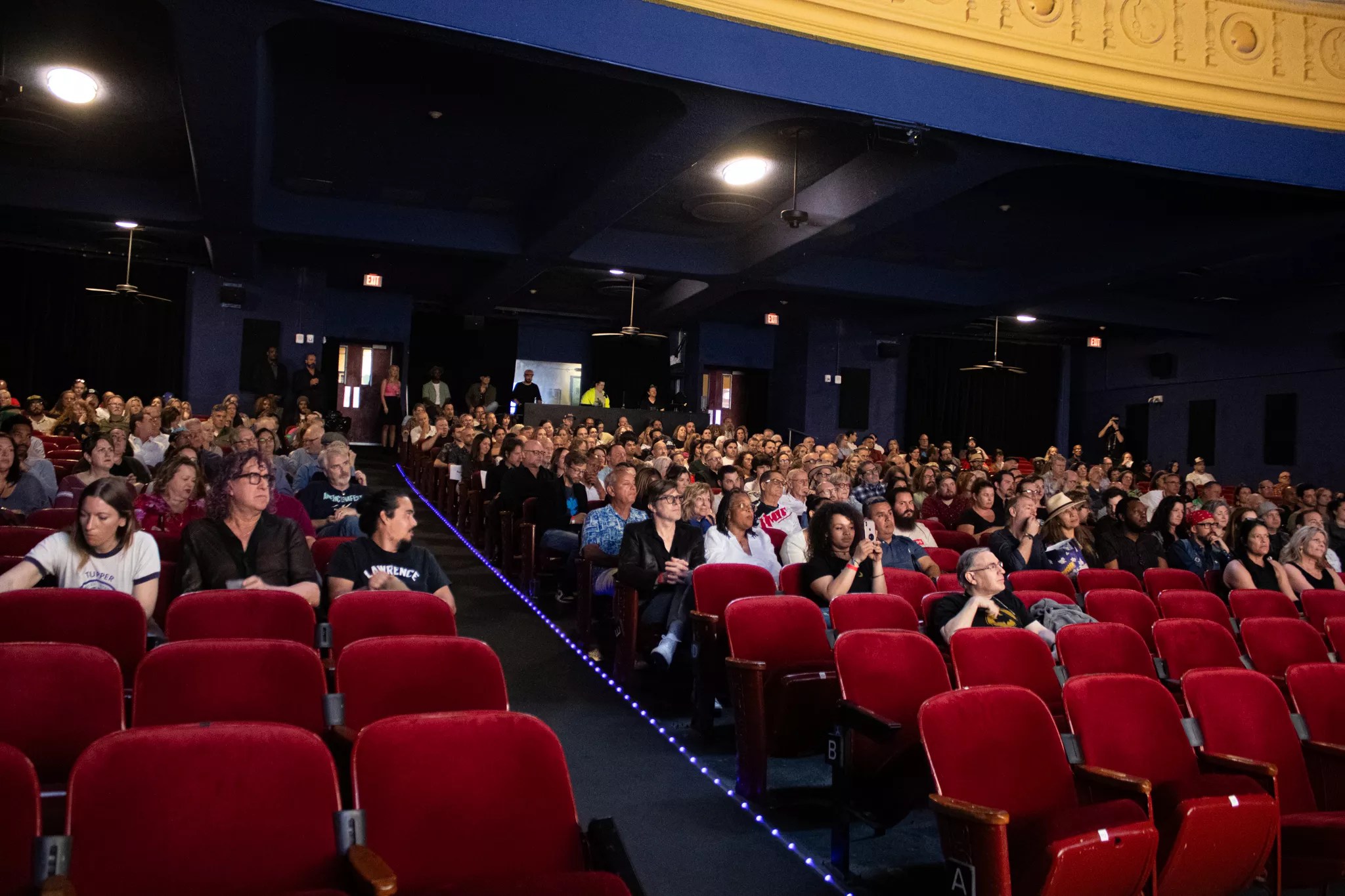
Ismael Belkoura

Audio By Carbonatix
To say that mainstream cinema is at an inflection point would perhaps be disingenuous, as the last few years have seen many massive blockbusters like Top Gun: Maverick, Barbie and Avatar: The Way of Water rise to break financial records.
On the inverse, viewership for independent cinema has certainly declined, as it has become increasingly challenging for smaller films to gain recognition. A key issue behind this, though, is accessibility – in an industry that insists on only serving coastal audiences in New York and Los Angeles, it shouldn’t come as a shock that audiences in a city like Dallas have fewer incentives to check out smaller films. Still, the demand exists.
If there is a way for arthouse titles to survive when major releases like Sonic the Hedgehog 3 and Mufasa: The Lion King have a monopoly on showtimes, one potential solution is an investment in international cinema.
Foreign titles aren’t unmarketable, and the domestic performances of recent movies like The Boy and the Heron and Godzilla Minus One indicate that the vast majority of audiences aren’t concerned about subtitles. What’s more, there’s a case to be made for Dallas leading the charge in making these films accessible.
Of course, this city has seen success in launching specialty events that target specific demographics. In recent years, it has become an increasingly popular trend for anime films to have limited engagement runs in select theaters, as titles like Haikyu!! The Dumpster Battle and My Hero Academia: You’re Next have become legitimate domestic hits in 2024. For its part, North Texas has promoted these titles in its festival arm, as the Dallas International Film Festival has ramped up its outreach to include films from Europe and Asia.
This year’s Academy Award nominations also showcased growing appreciation for international cinema. While France’s Emilia Perez did not receive widespread theatrical distribution due to its release on Netflix, it did screen in select markets, including Dallas, with showings at the historic Texas Theater and Landmark Inwood Theatre. More impressive is the surprising success of I’m Still Here, a biographical drama about the life of a Brazilian politician who was kidnapped by the authoritarian regime in the 1980s.
Dallas may have only initially screened I’m Still Here in its arthouse circles, but the film’s nomination for Best Picture at the Academy Awards earlier this year, paired with Fernanda Torres’ runaway Best Actress win at the Golden Globes, led to a bump in showtimes.
While awards season can boost interest in foreign-language films that cater to hardcore awards buffs, there have also been signs that international titles have the potential to be four-quadrant successes.
The Latvian animated adventure film Flow received the trophy for Best Animated Feature at the Academy Awards and has managed to earn nearly $15 million on a budget of less than $4 million. Though it’s a film for children, it tells a survival story about animals in the midst of a great storm without any dialogue. Flow wasn’t successful solely because it was an Oscar contender, either. The film was already leading the biggest per-theater averages in markets like Dallas during the early part of December, where it made its first expansion beyond the coveted coastal cities.
There’s no better visibility for international cinema than the prestigious platform that comes with awards, but Dallas has shown a dedication to highlighting titles that may have fallen under the radar, too. Currently, the Angelika Film Center is set to screen acclaimed South Korean picks like Poetry and Parasite. Meanwhile, the Meadows Museum is slated to show standout Spanish films throughout this summer.
Dallas curators have made efforts to show international cinephiles that they are recognized and have an impact, too. It’s no coincidence that as Plano-headquartered theater chain Cinemark invests more into distributing Indian films onscreen, the country’s box office also reached record highs in 2024.
Training the approach of audiences is no easy feat, but the radical pace at which perceptions about international film have evolved is noteworthy. February saw the celebration of Parasite’s fifth anniversary of winning the Academy Award for Best Picture with a nationwide re-release. While screenings weren’t exclusive to Dallas, the demand from North Texas cinephiles did bring the rare opportunity to see the film in massive IMAX theaters like Dallas’ Cinemark on Webb Chapel Road and the AMC Northpark.
Beyond the financial rewards of promoting international cinema, there is tangible value in embracing stories that come from an international perspective. With a focus on accessibility to foreign filmmaking, Dallas offers not only a safety net for those who seek to see themselves represented on screen but also a guiding light for the future of international films in the U.S.